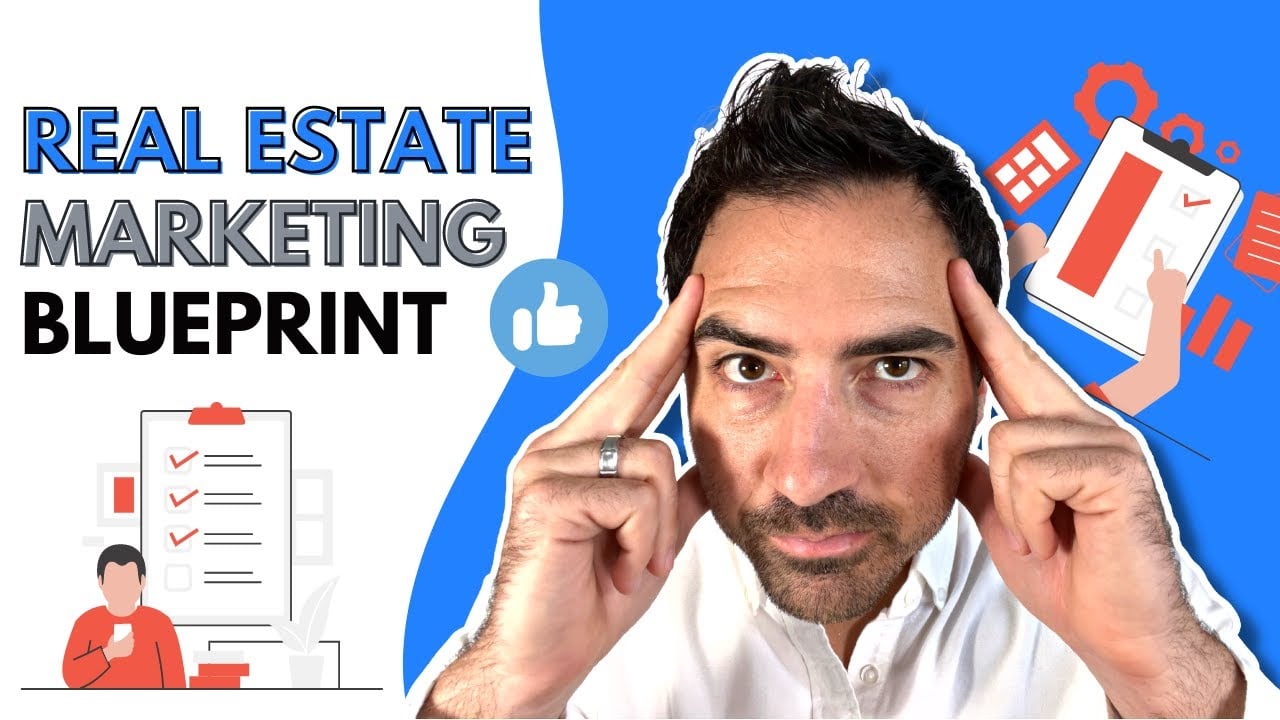- real estate advertising
- 1. Real Estate Ads On Facebook And Instagram
- 2. Analyzing Effective Facebook Real Estate Ads
- 3. Importance Of Attention-Grabbing Titles And Professional Appearance In Video Ads
- 4. Enhancing Impact With Simple And Visually Appealing Designs
- 5. Stand Out With Emojis And Bold Design Elements
- 6. Effective Copy That Plays On Audience Desires
- 7. Exploring Outdoor Real Estate Ads As An Alternative To Digital Platforms
- 8. Innovative Examples Of Real Estate Advertising Campaigns
In a world where realestate transactions are increasingly conducted online, advertising has become the key to success in the industry. Whether you’re looking to generate leads or build your brand, effective real estate advertising can make all the difference.
In this digital age, platforms like Facebook and Instagram have emerged as powerhouses for reaching potential buyers and sellers. However, catching the attention of these audiences requires more than just a catchy title.
A professional appearance and visually appealing designs are crucial, along with the use of emojis and persuasive copywriting that taps into the desires of your target market. But the challenges don’t stop there – class-action lawsuits are challenging commission structures, leading to concerns about lower commissions and increased competition.
The MLS remains a powerful tool, but even the National Association of Realtors (NAR) faces legal challenges that could shake the industry to its core. With an uncertain outcome hanging in the balance, the future of realestate hangs in the balance.
| Item | Details |
|---|---|
| Topic | Real Estate Advertising: Essential Strategies for Effective Marketing |
| Category | Ads |
| Key takeaway | In a world where real estate transactions are increasingly conducted online, advertising has become the key to success in the industry. |
| Last updated | December 27, 2025 |
real-estate-advertising">real estate advertising
Real estate advertising is an essential tool for building a personal brand and generating leads. Platforms like Facebook and Instagram have become popular for real estate advertising, allowing agents to reach a wider audience.
Attention-grabbing titles and a professional appearance are crucial for video ads, while simple and visually appealing designs enhance the impact of real estate ads. The use of emojis and bold design elements can make ads stand out.
Effective copy should play on the fear of missing out (FOMO) and tap into the desires of the audience. In addition to digital platforms, outdoor real estate ads can be an alternative approach.
There are numerous examples of innovative real estate advertising campaigns, including effective print advertising. However, the real estate industry currently faces serious challenges, with class-action lawsuits targeting the commission structure and practices of the National Association of Realtors (NAR) and major brokerages.
These lawsuits aim to decouple commissions paid to buyer’s agents and seller’s agents, potentially leading to lower commissions and increased competition among agents. While the outcome of these lawsuits is uncertain, the potential consequences could be significant for the industry, including the possibility of lower commissions and more competition among agents.
However, it is important to note that the NAR argues these changes could negatively impact first-time and low-income buyers. Overall, the real estate industry is facing a serious threat from these lawsuits, and their outcome could potentially revolutionize the industry.Key Points:
- Real estate advertising is essential for building a personal brand and generating leads.
- Platforms like Facebook and Instagram are popular for real estate advertising, reaching a wider audience.
- Attention-grabbing titles and professional appearance are crucial for video ads, while simple and visually appealing designs enhance the impact of real estate ads.
- Effective copy should tap into the fear of missing out (FOMO) and desires of the audience.
- Outdoor real estate ads are an alternative approach to digital platforms.
- Lawsuits targeting the commission structure and practices of the National Association of Realtors (NAR) and major brokerages pose a serious threat to the industry, potentially leading to lower commissions and increased competition among agents.
Sources
https://www.businessinsider.com/real-estate-agents-lawsuits-buy-sell-homes-forever-housing-market-2023-6?op=1
https://theclose.com/real-estate-ads/
https://www.followupboss.com/blog/real-estate-advertising
https://blog.hubspot.com/sales/real-estate-marketing
Check this out:
💡 Pro Tips:
1. Consider using outdoor advertising as an alternative to digital platforms for real estate ads. It can help reach a wider audience and attract attention in a different way than online ads.
2. Create visually appealing designs for your real estate ads. Simple, clean designs that are visually engaging can have a greater impact on viewers and make your ads stand out from the competition.
3. Use emojis and bold design elements in your ads to make them stand out even more. Emojis can add personality and catch the viewer’s eye, while bold design elements can help highlight important information or create a sense of urgency.
4. Craft effective copy that plays on the fear of missing out (FOMO) and taps into the desires of your target audience. Use persuasive language and create a sense of urgency to encourage potential buyers or renters to take action.
5. Consider innovative real estate advertising campaigns to differentiate yourself from competitors. Think outside the box and come up with creative ideas that can capture the attention of your target audience and make a lasting impression.
1. Real Estate Ads On Facebook And Instagram
Real estate advertising has undergone a significant transformation in recent years, with Facebook and Instagram emerging as popular platforms for connecting with potential buyers and sellers.
These social media platforms offer several advantages for real estate agents looking to build their personal brand and generate leads.
On Facebook, agents can create targeted ads based on location, interests, and demographics, ensuring that their message reaches the right audience. Instagram, with its visually-driven format, allows agents to showcase stunning images and videos of their properties, creating a captivating experience for potential buyers.
2. Analyzing Effective Facebook Real Estate Ads
To understand the impact of real estate ads on Facebook, it is essential to analyze some examples of successful campaigns.
One such example is an ad that features a beautifully renovated historic home, highlighting its unique features and picturesque setting. The ad’s targeting strategy ensures that it reaches homebuyers interested in architecture and historic properties.
Another effective Facebook real estate ad focuses on a luxury waterfront condominium, capturing the attention of potential buyers seeking a sophisticated and luxurious lifestyle. The ad’s use of high-quality images and a well-crafted description conveys the property’s exclusivity and desirability.
Analyzing successful Facebook real estate ads allows agents to learn from best practices and incorporate them into their own campaigns, increasing their chances of generating leads and closing deals.
3. Importance Of Attention-Grabbing Titles And Professional Appearance In Video Ads
Video ads have become a powerful tool in real estate advertising, but their impact heavily relies on attention-grabbing titles and a professional appearance.
An engaging title captures the viewer’s interest, prompting them to watch the entire video. Incorporating professional graphics, transitions, and music elevates the video’s quality, leaving a lasting impression on potential buyers.
Agents should ensure that their video ads are visually appealing, well-edited, and convey a sense of professionalism. This not only attracts viewers but also establishes the agent as a trusted expert in the industry.
4. Enhancing Impact With Simple And Visually Appealing Designs
In the realm of real estate advertising, simplicity and visual appeal go hand in hand.
Ads that incorporate clean and minimalist designs have a greater impact on viewers. By utilizing spacious layouts, clear typography, and high-quality images, agents can create ads that are visually striking and easily digestible.
Simplicity in design also extends to the ad’s content. Agents should focus on presenting the key selling points of a property concisely, making it easier for potential buyers to understand its value proposition.
5. Stand Out With Emojis And Bold Design Elements
To make real estate ads stand out in a crowded marketplace, the use of emojis and bold design elements can be highly effective.
Emojis add a touch of personality and playfulness to an ad, capturing the attention of viewers scrolling through their feeds. Additionally, incorporating bold design elements such as bright colors, strong typography, and striking visuals creates a visually arresting experience for potential buyers.
Though the use of emojis and bold design elements should be strategic and aligned with the target audience, when executed thoughtfully, they can significantly enhance the impact of real estate ads.
6. Effective Copy That Plays On Audience Desires
Crafting compelling and persuasive copy plays a crucial role in real estate advertising.
Successful ads tap into the audience’s desires, creating a sense of FOMO (fear of missing out) and appealing to their aspirations. By highlighting unique features, desirable amenities, and the potential for a dream lifestyle, copy can evoke emotions and prompt action from potential buyers.
Understanding the desires and motivations of the target audience allows agents to tailor their copy to resonate with their needs, increasing the effectiveness of their advertising efforts.
7. Exploring Outdoor Real Estate Ads As An Alternative To Digital Platforms
While digital platforms like Facebook and Instagram offer immense opportunities for real estate advertising, it is important not to overlook the power of outdoor advertising.
Placing ads in strategic locations, such as billboards and bus stops near high-traffic areas, can capture the attention of passersby and potential buyers in a more traditional sense.
Outdoor real estate ads provide an alternative channel to reach a broader audience and create awareness about available properties. When combined with a strong online presence, outdoor advertising can amplify an agent’s marketing efforts and attract a diverse range of buyers.
8. Innovative Examples Of Real Estate Advertising Campaigns
Innovation in real estate advertising has pushed boundaries and transformed traditional marketing methods.
Several creative campaigns have emerged, showcasing the industry’s willingness to explore new approaches to engage potential buyers.
One notable example is a virtual reality (VR) campaign that allows users to virtually tour properties from anywhere in the world. By immersing potential buyers in a realistic virtual environment, this innovative advertising method revolutionizes the way properties are presented and experienced.
Another groundbreaking campaign focuses on leveraging augmented reality (AR) technology to overlay property information and virtual objects onto real-life environments. This interactive approach merges the physical and digital worlds, capturing the attention of tech-savvy buyers.
By embracing technological advancements and thinking outside the box, these innovative real estate advertising campaigns demonstrate the industry’s commitment to finding fresh and engaging ways to reach and connect with buyers.
In conclusion, real estate advertising is a critical aspect of marketing for agents looking to build their personal brand and generate leads. Platforms like Facebook and Instagram provide agents with powerful tools to create targeted ads that resonate with potential buyers.
Effective ads rely on attention-grabbing titles, professional appearances in video ads, visually appealing designs, and compelling copy that taps into audience desires. While digital platforms dominate the advertising landscape, outdoor ads and innovative campaigns continue to provide alternative avenues to reach a diverse range of buyers.
This post updated with new ad network performance data.
The real estate industry faces potential disruption from ongoing lawsuits challenging the current payment method for agents. If successful, these lawsuits could result in changes to the commission structure and more competition among agents.
The outcome of these legal proceedings remains uncertain, but the potential revolution in the industry could lead to lower commissions and increased opportunities for buyers and sellers alike. Despite the legal challenges, real estate advertising remains a vital component of a successful marketing strategy, and agents must continue to adapt and innovate to thrive in this dynamic industry.
Performance Marketing Tips • Self-Serve DSP Platform • Advertising Platform for Marketers • Buy Traffic • Native Ad Network











